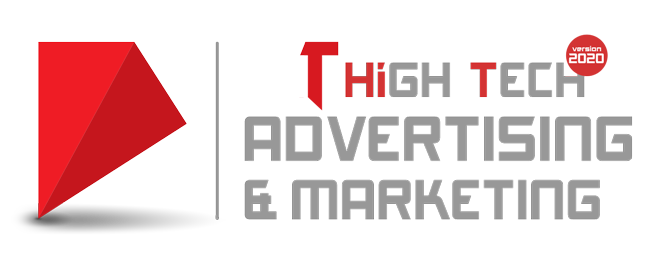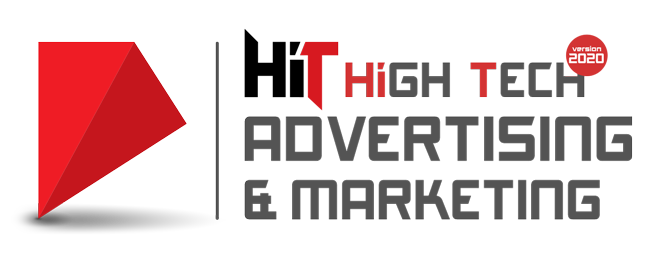Introduction
Content marketing is not just about weaving words together, but it’s about crafting messages that resonate. Ever wondered why certain content sticks and others are easily forgotten?
In today’s digital age, where information is abundantly available and attention spans are fleeting, businesses and brands are continuously seeking effective ways to connect with their audience.
Enter: Content Marketing. It’s not just about broadcasting a message; it’s about creating a dialogue, telling a story, and offering value. But what exactly is it? Let’s unpack this buzzword.
[speaker-mute] [/speaker-mute]What is Content Marketing?
Definition of Content Marketing: At its core, content marketing is the art and science of crafting valuable, relevant, and consistent content to attract and engage a well-defined audience. It’s not about the hard sell; it’s about providing content that your audience finds genuinely useful, ultimately driving profitable customer action.
Why is Content Marketing Important?
Content marketing stands at the intersection of brand storytelling and audience engagement. It offers businesses:
- A platform to showcase expertise and establish thought leadership.
- Enhanced brand visibility and awareness.
- Improved trust and relationship-building with potential customers.
- A significant boost to SEO efforts, making businesses more discoverable online.
- A sustainable and long-term method to generate organic traffic and leads.
How Does Content Marketing Work?
Imagine content marketing as a magnet. Instead of chasing your audience (as with traditional advertising), you’re drawing them in with compelling content. This process typically involves:
- Identifying your target audience.
- Crafting tailored content that solves their problems or entertains them.
- Distributing this content across various platforms where your audience spends time.
- Engaging with your audience, fostering relationships, and subtly guiding them down the sales funnel.
The Benefits of Content Marketing
Every business aims for growth, and content marketing offers a multitude of benefits to ensure just that. Why should you invest time, resources, and efforts in content marketing? Here are the core benefits:
- Increased Website Traffic: Imagine having a store and seeing a throng of potential customers pouring in every day. That’s the digital equivalent of increased website traffic. High-quality content can act as a magnet, drawing readers, viewers, and listeners to your online presence.
- More Leads and Sales: It’s not just about attracting visitors; it’s about converting them. Effective content speaks to the pain points of your audience, offering solutions (your products or services) and prompting them to make a purchase.
- Stronger Customer Relationships: Engaging content fosters relationships. It’s akin to having meaningful conversations with your audience, where they begin to trust your brand, rely on your expertise, and feel valued.
- Improved Brand Awareness: When your content gets shared, commented upon, or even just viewed repeatedly, it amplifies your brand’s presence in the market. Think of it as your brand’s footprint in the digital sand.
- Thought Leadership: Rise above the noise by becoming an authoritative voice in your niche. It’s like being the guiding star in a night sky full of stars. Offer insights, predictions, and valuable information that no one else does.
- Competitive Advantage: While your competitors are pitching sales, you’re building relationships. Content marketing can be the unique strategy that sets you apart, making you the preferred choice for consumers.
The Types of Content Marketing
In the vast sea of content marketing, there are various vessels to choose from. Each type serves a unique purpose, catering to different segments of your audience:
- Blog Posts: The bread and butter of content marketing. It’s your ongoing conversation with the audience, discussing topics they care about.
- Articles: More in-depth than blog posts, they delve deeper into subjects, offering thorough insights.
- Ebooks: The marathon runners of content. Detailed, structured, and comprehensive, they offer value that’s worth the download.
- Whitepapers: Highly authoritative, research-driven content that often presents solutions to specific problems.
- Case Studies: Showcase success stories. It’s evidence of your expertise in action.
- Webinars: Live, interactive sessions. Think of them as digital seminars, educating and engaging your audience in real-time.
- Podcasts: The radio of the digital age. Share insights, interviews, or stories as listeners tune in during their commutes, workouts, or leisure.
- Videos: Engaging, dynamic, and versatile. From tutorials to testimonials, the possibilities are endless.
- Infographics: Data made digestible. Convert complex information into easy-to-understand visual formats.
- Social Media Posts: Snackable content. Quick to consume, easy to share, and great for engagement.
- Email Newsletters: Directly into their inbox. Keep your subscribers updated, engaged, and connected with regular updates.
Creating a Content Marketing Strategy
Crafting content without a strategy is like embarking on a voyage without a map. Here’s a simplified guide to crafting a winning content marketing strategy:
- Define Your Goals: Begin with the end in mind. Are you looking for brand awareness, increased sales, or subscriber growth? Your goals will shape your content strategy.
- Identify Your Target Audience: Who are you talking to? Understand their needs, preferences, and pain points. It’s like tuning your radio to the right frequency.
- Choose the Right Content Formats: Based on your audience’s preferences and your business objectives, decide on the types of content that would resonate the most.
- Create a Content Calendar: Consistency is key. Plan out what to post, when, and where. This calendar acts as your content compass, ensuring you stay on track.
- Promote Your Content: Creating content is half the battle; the other half is promotion. Distribute your content on relevant channels, ensuring it reaches your target audience. It’s like amplifying your voice in a bustling marketplace.
Creating High-Quality Content
In the realm of content marketing, quality rules supreme. But what constitutes ‘high-quality’? It isn’t just about stringing words together; it’s a harmonious blend of research, creativity, and strategy. Here’s a peek into the recipe for top-notch content:
- Conduct Keyword Research: Think of keywords as the compass for your content journey. They guide you toward what your audience is actively searching for, ensuring your content remains relevant and discoverable. It’s like finding out the hottest topics of conversation at a party and joining in.
- Write Engaging Headlines: Your headline is the first impression. It’s the glint that catches the reader’s eye and piques their interest. Would you rather open a door labeled “This way” or “Discover the Magic Beyond?
- Use Relevant Images and Videos: A picture speaks a thousand words, and a video probably even more. Visual elements break the monotony of text, making the content more engaging and memorable. It’s the sprinkle of glitter on a plain canvas.
- Write in a Clear and Concise Style: Clarity is the beacon in the fog of information overload. Ensure your message is direct, simple, and free from jargon. After all, why say “utilize” when “use” would suffice?
- Optimize Your Content for Search Engines: SEO is your content’s best friend. It ensures that search engines understand, index, and rank your content effectively. It’s like giving your content the spotlight on the digital stage.
Promoting Your Content
Creating stellar content is just the beginning. What follows is the critical task of ensuring it reaches the right audience. Think of it as having baked a delicious cake; now, it’s time to serve it. Here’s how:
- Share Your Content on Social Media: Your audience is already there, scrolling away. Sharing content here is like showcasing your best moves on a dance floor full of enthusiasts.
- Submit Your Content to Directories: Directories are like libraries. They categorize and archive content, making it easily discoverable by those specifically looking for it.
- Email Your Subscribers: A direct line to your audience. Sharing your latest content with them is like inviting friends over for a special evening.
- Reach Out to Influencers: Think of them as the popular kids in school. When they talk, others listen. A nod from them can amplify your content’s reach exponentially.
Measuring Your Content Marketing Results
In the vast landscape of content marketing, it’s crucial to know if your efforts are bearing fruit. Think of it as checking the health of a plant you’ve been nurturing. Here are the key metrics to track:
- Track Website Traffic: The footfalls in your digital store. Is your content drawing crowds?
- Monitor Lead Generation: It’s one thing to attract visitors; turning them into potential customers is the real deal. Are they signing up, downloading resources, or making inquiries?
- Measure Sales Conversions: The ultimate validation. Are your visitors turning into paying customers?
- Analyze Social Media Engagement: Likes, shares, comments – they all hint at how your content resonates with the audience. Is your content creating ripples in the social sphere?
- Track Brand Awareness: Beyond metrics, it’s about how many recognize and recall your brand. Are you becoming a household name?
Content Marketing for Different Industries
While the essence of content marketing remains constant, its application varies across different sectors and industries. Each industry has its unique audience, challenges, and opportunities, and content marketing morphs to cater to these specific nuances. Let’s delve into its adaptation across different sectors:
- Content Marketing for B2B Businesses:
- Target Audience: Focus on professionals, decision-makers, and industry leaders.
- Primary Goal: Establish thought leadership, build trust, and drive long sales cycles.
- Preferred Content Types: Whitepapers, case studies, webinars, and industry reports.
- Nuance: The buying process involves multiple stakeholders; hence, content must cater to varying levels of expertise and interests.
- Content Marketing for B2C Businesses:
- Target Audience: Direct consumers looking for products or services for personal use.
- Primary Goal: Drive immediate sales, foster brand loyalty, and generate repeat business.
- Preferred Content Types: Blogs, videos, infographics, and social media posts.
- Nuance: Emotional storytelling can be a potent tool, appealing directly to consumers’ desires and needs.
- Content Marketing for Nonprofits:
- Target Audience: Donors, volunteers, and beneficiaries.
- Primary Goal: Raise awareness, generate donations, and mobilize volunteers.
- Preferred Content Types: Personal stories, impact reports, and event promotions.
- Nuance: Content should evoke empathy, highlight transparency, and showcase tangible impacts.
- Content Marketing for Startups:
- Target Audience: Early adopters, investors, and potential team members.
- Primary Goal: Build brand awareness, attract initial customers, and secure funding.
- Preferred Content Types: Behind-the-scenes content, founder interviews, and product demos.
- Nuance: Highlight innovation, disruptiveness, and the startup’s unique value proposition.
Content Marketing Trends for 2023
As the digital realm evolves, so does content marketing. Staying ahead of the curve requires an awareness of the latest trends and dynamics. Here’s what’s making waves in 2023:
- The Rise of Video Content: The visual medium is captivating audiences like never before. From bite-sized TikTok videos to long-form YouTube content, video is becoming the preferred content form, offering an immersive experience.
- The Growth of AI-Generated Content: Automation meets creativity. With the advancements in AI, content generation is becoming more streamlined, personalized, and efficient, but the human touch remains irreplaceable.
- The Increasing Importance of Micro-Influencers: Authenticity is reigning supreme. Micro-influencers, with their niche audiences and genuine engagement, are becoming more valuable for brand collaborations than their mega-influencer counterparts.
- The Convergence of Content Marketing and E-Commerce: Content isn’t just for brand awareness anymore. With shoppable posts and integrated e-commerce platforms, content is directly driving sales, blurring the lines between marketing and shopping.
Related Terms
To truly grasp the essence of content marketing, it’s essential to familiarize oneself with some related terminologies:
- Content: Any piece of information, be it text, graphics, videos, etc., crafted to inform, entertain, or inspire an audience.
- Content Strategy: The planning, development, and management of content. Think of it as the roadmap that guides your content marketing efforts.
- Content Calendar: A scheduling tool or document that outlines when and where you’ll publish upcoming content. It’s your content marketing’s organizational backbone.
- Content Distribution: The act of promoting your content across different channels, be it through social media, email marketing, or even paid advertising.
- Content Creation: The process of generating topic ideas that appeal to your buyer persona, creating written or visual content around those ideas, and making that information accessible to your audience.
- Content Curation: Handpicking and sharing content created by others that is relevant to your audience. It’s about adding your voice and value to existing content to enhance its relevance.
- Content Optimization: Tweaking and enhancing your content to improve its visibility on search engines and its overall performance. This involves SEO practices, improving readability, and updating outdated information.
- Content Analytics: The data-driven approach to assess how your content is performing. It delves into metrics like engagement rates, conversion rates, and the overall ROI of your content marketing efforts.
- Content Marketing ROI: A measure of the profitability and effectiveness of your content marketing strategy. It evaluates the returns gained from the content marketing efforts relative to the costs invested.
Conclusion
Content marketing isn’t just a buzzword; it’s the backbone of digital branding and engagement in today’s interconnected world. Its importance transcends industries, scales, and business models. Whether you’re a giant conglomerate or a fledgling startup, content marketing offers an avenue to connect, engage, and convert your target audience.
Starting with content marketing? Remember, it’s about offering value, telling stories, and building relationships. Dive deep into your audience’s psyche, understand their needs, and offer content that resonates. And if the journey seems daunting, remember partners like HiT | High tech Business Solution are always ready to guide and empower your content voyage.
Summary: Content marketing is about understanding your audience, creating valuable content, and measuring your success. It’s an evolving field, with 2023 bringing in exciting trends. Businesses can’t ignore the importance of content marketing. Whether you’re a startup or a multinational corporation, it’s the golden key to unlock success. And if you need a guiding hand, remember: HiT is here for you.
FAQs:
- What is the difference between content and content marketing?
Content is the material you produce (like blog posts, videos), while content marketing is the strategy behind producing and distributing it to achieve business goals. - How frequently should I update my content?
It varies depending on your strategy. However, consistency and quality are crucial. - Can I do content marketing without a blog?
Absolutely! While blogs are effective, other formats like videos, podcasts, or infographics can also be utilized. - How do I know if my content marketing is effective?
Measure! Track website traffic, lead generation, sales conversions, and other relevant metrics. - What’s the biggest content marketing trend in 2023?
Video content is on the rise, closely followed by the integration of AI and the increasing importance of micro-influencers.
Remember, in the ever-evolving world of content marketing, it’s not about keeping up; it’s about staying ahead. And with HiT | High tech Business Solution, you’re always a step forward. So, ready to leave a mark?


